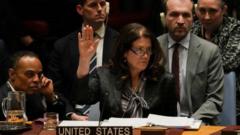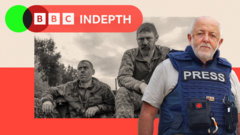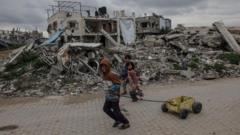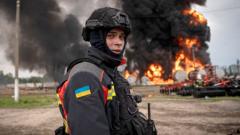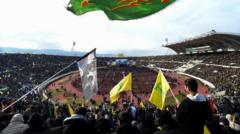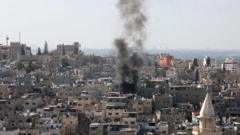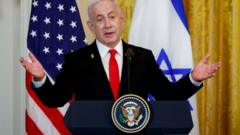Netanyahu's insistence on removing potential threats from the new Syrian forces has raised tensions at a critical juncture for the region. While Syria's interim President, Ahmed al-Sharaa, attempts to assert sovereignty, Israel’s military presence continues to challenge this narrative and threaten any prospects for a peaceful resolution.
Israel's Demilitarisation Demands May Escalate Tensions with Syria’s New Regime
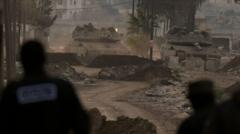
Israel's Demilitarisation Demands May Escalate Tensions with Syria’s New Regime
Israeli Prime Minister Benjamin Netanyahu's call for the demilitarisation of southern Syria could ignite further conflict with Syria's nascent leadership following Bashar al-Assad's overthrow.
Israeli Prime Minister Benjamin Netanyahu has issued a strong demand for the complete demilitarisation of southern Syria, an announcement that poses possible new challenges for the recently established leadership following the ousting of President Bashar al-Assad. In comments delivered to military cadets, Netanyahu emphasized that Israel would not permit the Islamist group Hayat Tahrir al-Sham (HTS), which played a significant role in Assad's downfall, or any new Syrian army formations to operate in areas south of Damascus.
Notably, Netanyahu announced that Israeli forces would maintain a presence in territories seized after Assad's fall last December, shifting from a previously stated position of temporary occupation. This change in strategy appears to reflect an apprehension regarding the capabilities of the new Syrian leadership, which has deep ties to jihadist movements, increasing the potential for conflict.
Syria's interim President Ahmed al-Sharaa, on the other hand, reassured Israel of his intent to maintain peace and adhere to the disengagement agreement established post-1973 war. Concurrently, he urged Israel to withdraw from the territories it currently occupies to reestablish Syria's sovereignty. However, Netanyahu’s lack of faith in Sharaa’s assurances indicates a precarious situation given the broader context of power shifts and foreign influences within Syria.
These developments occur amidst a backdrop of fluctuating international engagements in Syria. Key players, such as Iran and Russia, seem to have diminished influence, while the Turkish role—due to its historical ties with HTS—remains uncertain. Netanyahu's decision to impose restrictions on Syrian military movements reflects not only Israel's strategic concerns but also poses a significant obstacle for Sharaa as he attempts to lay the groundwork for a unified Syria, free from external control.
Moreover, the increasing Israeli military activity within Syrian territory, including ongoing airstrikes targeting remnants of Assad's military machinery, conflicts starkly with Sharaa's aspirations for a consolidated state. If these pressures persist, it risks undermining the new leadership's legitimacy both domestically and internationally in their bid to stabilize a fractured nation. As both parties navigate this complex landscape, much will hinge on the responses to Israel’s position and the broader geopolitical currents shaping Syria’s future.

